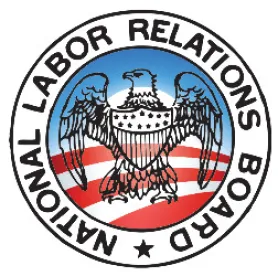A wildcat strike was not protected by the National Labor Relations Act (NLRA) once the striking employees became aware that their union disapproved of and disavowed the strike, the National Labor Relations Board (NLRB) has ruled. CC1 Limited Partnership d/b/a Coca Cola Puerto Rico Bottlers, 368 NLRB No. 84 (Sept. 30, 2019).
The employees’ continued striking, despite their union’s opposition, undermined the union’s exclusive bargaining authority and resulted in a loss of the NLRA’s protections, the NLRB explained.
Chairman John Ring, and Members Marvin Kaplan and William Emanuel participated in the decision.
Facts
A Teamsters Local represented warehouse employee at the company’s bottling plant. In September 2008, during negotiations for a successor collective-bargaining agreement, the union’s main representative at the plant and several shop stewards led employees in a two-hour work stoppage. The company suspended and then terminated the shop stewards.
On October 20, the first day of a strike led by the terminated stewards, the company’s counsel warned the union’s Secretary Treasurer, that it would take action against “the Union and its representatives” unless the illegal strike stopped. The union replied on the same day, making it “abundantly clear that [it] did not send or authorize the presence of Officers or Union members to take part in the strike.” The union stated in its letter that the strikers “were in violation of the statutes of the Union” and engaged in “clearly illegal activity.” The union assured the company that it would “be taking legal and union action” against the “false [union] leaders” who were “threatening … the welfare of the great majority of these workers in order to promote their own ignoble interests.”
The company had its security guards distribute copies of the union’s letter to the striking employees. However, most employees continued to strike for two more days, through October 22. The company ultimately suspended or discharged 86 of the strikers.
2015 Board Decision
The dispute first reached the Board in 2015. The Board decided the strike was protected by Section 7 of the NLRA and that the company unlawfully suspended and discharged the striking employees. CC1 Limited Partnership d/b/a Coca Cola Puerto Rico Bottlers, 362 NLRB No. 125 (June 18, 2015).
The NLRB applied Silver State Disposal Service, 326 NLRB 84 (1998). In that case, the Board developed a two-part test to determine whether a wildcat strike is protected: (1) whether the employees attempted to bypass their union and bargain directly with the employer; and (2) whether the employees’ position was inconsistent with the union’s position.
In ruling the company violated the law, the NLRB assigned little significance to the union’s October 20 strike disavowal letter, because it was the company that had distributed it to the striking employees.
D.C. Circuit Remand
The company appealed the decision to the U.S. Court of Appeals for the District of Columbia. CC1 Ltd. P’ship v. NLRB, 898 F.3d 26 (D.C. Cir. 2018). The Court remanded the case to the NLRB for further explanation of its conclusion that the wildcat strike was protected activity, focusing on the October 20 letter.
2019 Board Decision
Regarding the October 20 letter, the Board found that “[t]he mere distribution of the letter by the security guards cannot negate employees’ knowledge of the Union’s disavowal of the strike and legitimate their conduct in derogation of the Union’s position.” This was especially true, the Board said, because there was no evidence that the notification to the strikers was the result of manipulation or fraud, or that the third-party messengers engaged in misconduct, intimidation, or other coercion in distributing the flyers.
The Board noted that the letter was “facially bona fide” and, “under the circumstances surrounding the strike[,] amply sufficed to establish to the strikers that their Union opposed the strike.” (The Board also found significant the conspicuous absence of union leadership who supported or participated in the strike or conducted or attended the meeting at which the strike vote took place.)
The employees’ continued striking after the letter’s distribution was not protected by the NLRA, the Board ruled. The Board did not apply Silver State. Instead, it applied Emporium Capwell Co. v. Western Addition Community Organization, 420 U.S. 50 (1975), where the U.S. Supreme Court held that a strike is not protected if it is an attempt to engage in separate bargaining from the striking employees’ union and interferes with the union’s exclusive bargaining representative status. the NLRB dismissed the challenges to the strikers’ suspensions and discharges. (In a footnote, the NLRB “question[ed] whether the standard set forth in Silver State Disposal for determining whether an unauthorized strike is protected is consistent with the principles of Emporium Capwell Co.”)
***
This decision is an example of the Trump Board’s efforts to clarify the standards with which employers must comply in protecting their businesses from overreaching activity by employees, non-employees and union representatives. (For another example, see our article, NLRB Strengthens Property Rights, Employers May Limit Off-Duty Access by Contractors’ Employees.)






 />i
/>i
